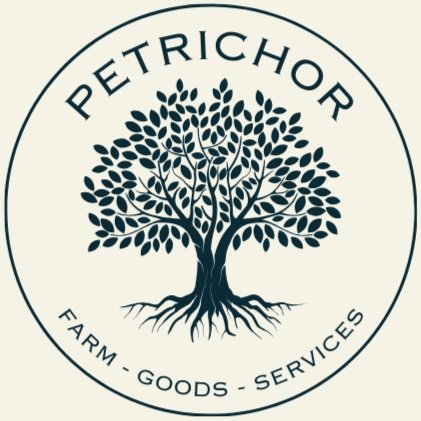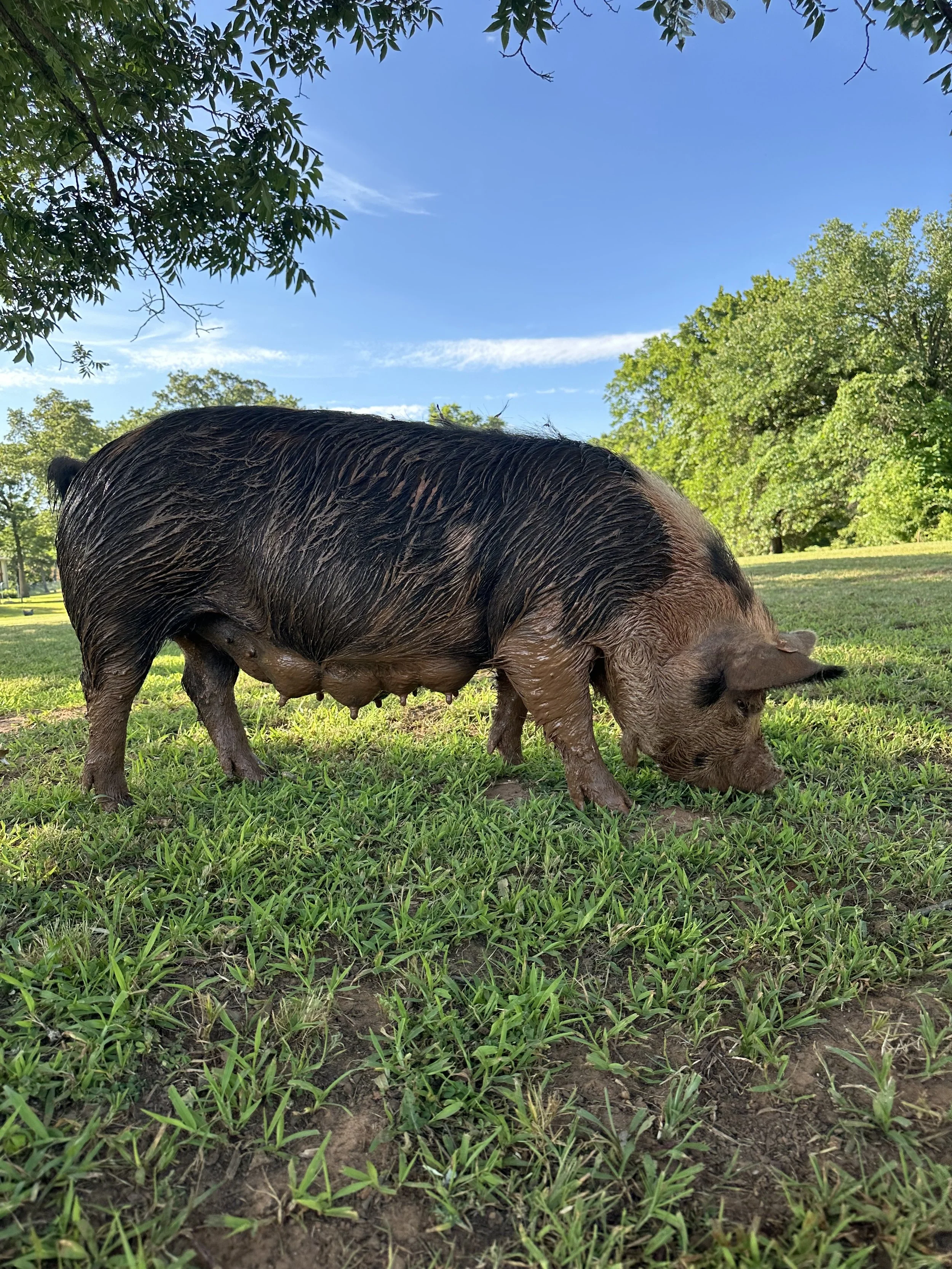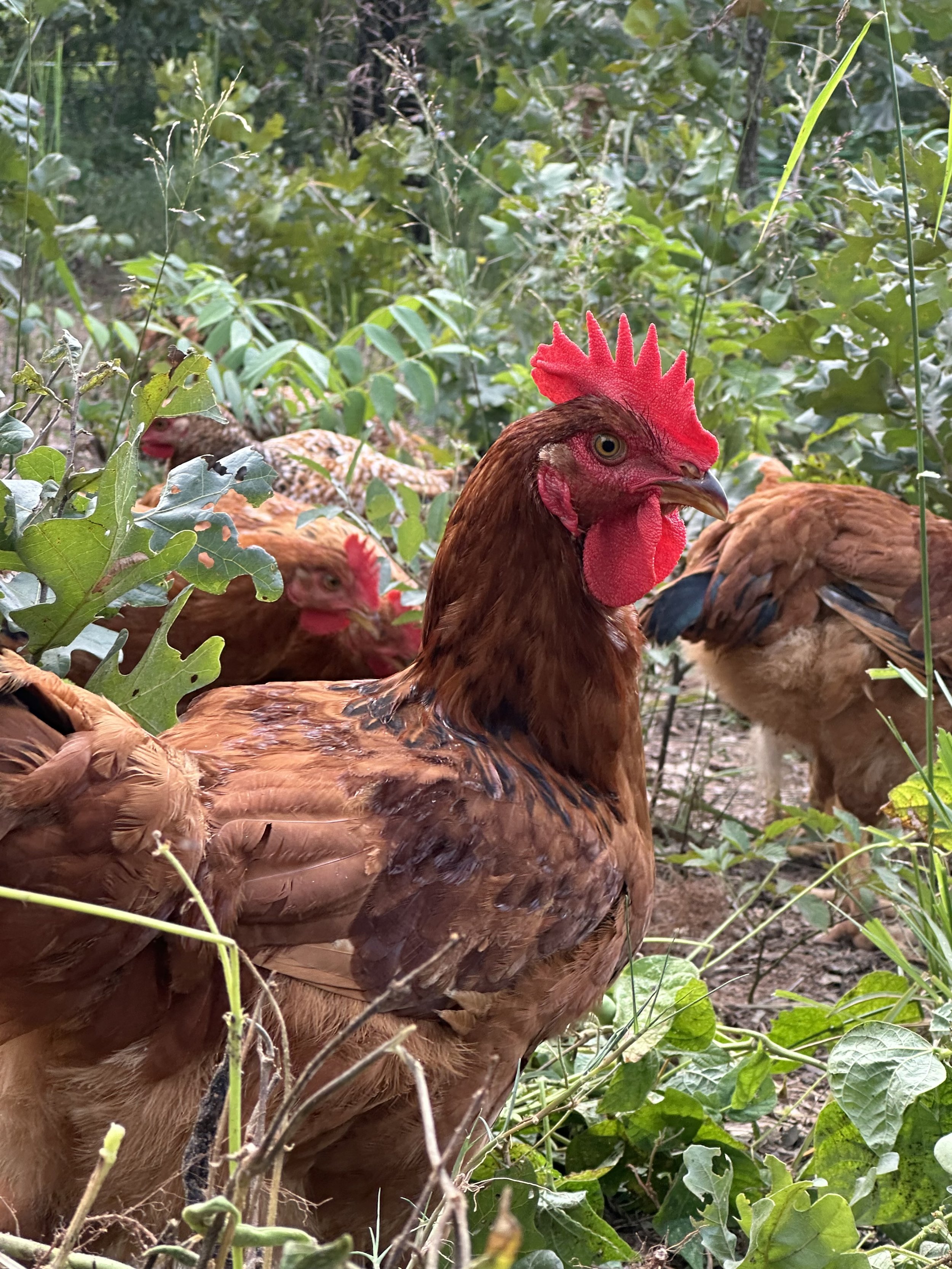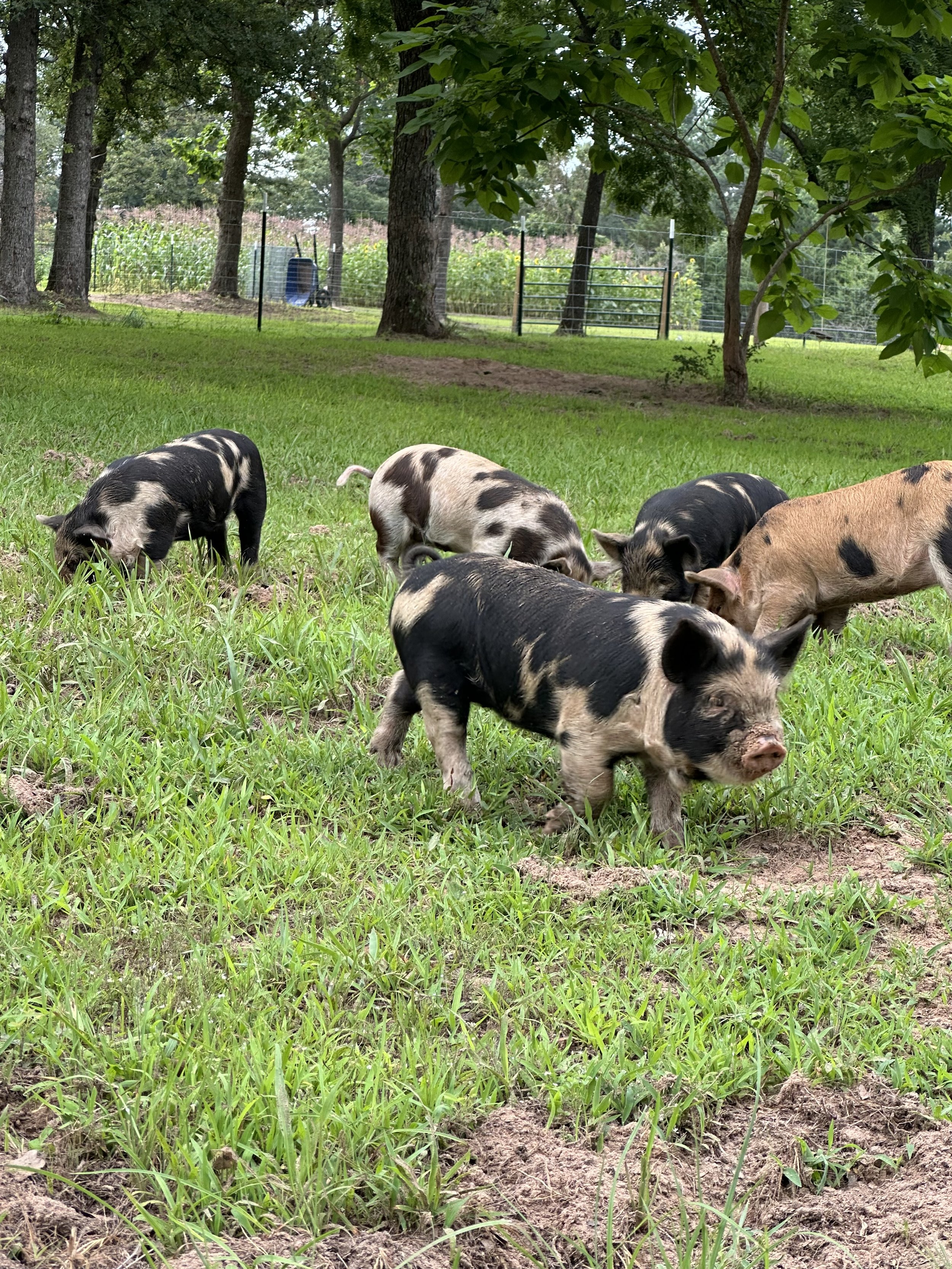The Benefits of Pasture-Raised Meats
“Trendy” may seem like a bad word, but the current push towards more sustainable and ethical foods is one I can get behind. Pasture-raised meat is just one trending food right now, and where we’re going to focus today.
It’s crazy to think just how much of a difference a location can make. But the benefits of your meat living on pasture while growing up go way beyond delectable flavor on the dinner plate. From superior nutritional value to animal welfare and impacting the local economy, pasture-raised meats are a win-win for your health and community.
Let’s dive into the key reasons to make the switch.
What Are Pasture-Raised Meats?
Green grass, blue skies, and the breeze in their faces… that’s how animals are supposed to live, amirite?
“Pasture-raised” means that the animals live outdoors, grazing the land instead of being confined to a feedlot or barn. These animals have constant access to fresh air and sunshine, only taking shelter when they need it. Ideally, they also feed on a diet that’s centered around what Nature provides rather than piles of imitation food that can’t hold a candle to the “real” stuff. The goal of a pastured meats program should be to offer adequate nutrition without trying to bulk them up as quickly and cheaply as possible.
Let’s be honest… it’s not really great for business. It takes more land and time to grow an animal this way, and both are costly.
That’s why conventionally raised animals are often confined to small spaces and fed high-calorie diets. Low exercise and high-calorie intake adds up to speedy weight gain, which is good for profit margins. But the combination can also lead to health issues for the animals and results in a lower-quality product for the consumer.
Pasture Raised Meats Provide More Nutritional Benefits
Meat grown slowly and in harmony with nature means more nutrients have time to be absorbed and developed.
Research shows that pasture-raised (grass-fed in this study) meats are just overall better than their grain-fed counterpart.
Higher levels of omega-3 fatty acids
Higher concentration of vitamins A and E
Elevated precursors of glutathione, a cancer-fighting antioxidant
Even more nutritional/technical jargon that’s above my pay-grade… read the study if you want to!
Pasture-raised meats tend to have less total fat than conventionally raised meats, for obvious reasons. But the fat that’s there is generally flavorful and derived from natural sources such as nuts and foraged grains.
Another critical point is the potential absence of undesirable treatments in pasture-raised farming practices. Conventional farms often rely on more medical intervention to ward off parasites and diseases and to treat wounds caused by overcrowding. Fewer animals in a rotational grazing system can usually bypass the need for these practices.
That being said, it must be noted that I would never advocate for neglect of an animal’s care. Even pastured animals get sick; if they do, they should be treated accordingly. Clinging to labels like “antibiotic-free” at the expense of an animal’s welfare is atrocious behavior, in my opinion. That’s why I don’t make these kinds of claims on my food products.
All the same, choosing to buy pasture-raised meats likely reduces your exposure to any additives that concern you and that can contribute to antibiotic resistance.
Pasture-Raised = Animal Welfare
Animal welfare is a major concern for many consumers, myself included. Even my own systems constantly get upgraded as I seek a better life for my critters!
It’s not always the case, and I’m a big fan of people getting to know their farmers, but pasture-raised programs almost always provide a more humane environment than factory farms.
Animals can roam freely (with limits), graze, and engage in natural behaviors. Whether it’s a moveable fencing system that rotates through a pasture or a free-range operation, farmers who prioritize pasture-raised seek to provide the best grass and foraging opportunities at all times.
At Petrichor Farm, that looks like…
Pigs wallowing in the pond and foraging for acorns in the woods
Chickens making nests in the straw bales and taking dust baths under the trees
Turkeys roosting wherever they want to and acting like they own the place
This contrasts sharply with the conditions in industrial farming, where animals are often confined in groups with animal-to-area ratios that are way too high to be healthy. Supporting pasture-raised farming is an ethical choice that aligns with treating animals with dignity and respect.
Buying Pastured Meats Supports Local and Sustainable Agriculture
The various layers of quarantine and shut down we all experienced in 2020 opened a lot of eyes to how precarious our food systems are. Paired with derailed trains, historic flood events, and a host of other issues over the past few years… let’s just say that many of us started thinking more strategically about making connections with stable food sources!
Most farmers producing pastured meats are small, family-owned operations selling locally. You’ll find them at farmer’s markets, their products at food hubs, and their farm trucks making deliveries directly to customers' doorsteps. Buying from them makes a noticeable impact on their bottom line, keeping them afloat and, subsequently, the community fed.
That’s not a sales pitch. Honest! It’s just a growing passion of mine to support local businesses and shop small. Buuuut… I can be your farmer if you want me to. ;)
Pasture Raised Meats for Life
Choosing pasture-raised meats is a simple yet impactful way to improve your diet, support animal welfare, and contribute to a stable local food system. You can take it one step further and go for farm-processed meat – let’s discuss that in the next post!







